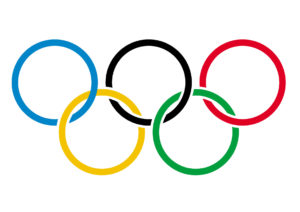Now that the Olympics are underway, the pomp and circumstance of the medal ceremonies have become a favorite for many viewers. But for the winners, a medal can mean much more than the symbol of championship – it can also mean cold, hard cash. Definitely something our credit counselors know that people can appreciate!
Did you know that many countries award medal winners with cash prizes upon returning home? In some countries, the prizes are small, but in others, they’re fortunes. Read on to find out how much your favorite medalists can expect when they get back to their home countries.
In Kazakhstan, the home country of fictional character Borat and former Soviet republic, gold winners can expect $500,000, with a sliding scale of returns based on placement – even sixth place athletes receive $5,000. Don’t expect too many half a million payouts this year – Kazakhstan has only won one gold medal in the Winter Games, for cross-country skiing back in at Lillehammer 1994. However, it did score its first figure skating medal this year, with Denis Ten winning bronze.
Gold medalists from Italy can expect a handsome sum upon returning home to the boot – a gold medal is worth $189,800. Though Italy has done well at Winter Games, it shines during the Summer Olympics, especially fencing – the nation has more medals in fencing than any other country. What unexpected fact from a credit counseling agency, right?
Estonia, an Eastern European country and former Soviet republic, rewards its gold medalists with $138,400, silver medalists with $96,400, and bronze medalists $60,000. In the Winter Games, Estonia has done well in cross-country skiing, earning seven medals in total since 2002.
This year’s host country, Russia, rewards its athletes well. Gold medalists earn $113,200, plus regional and private bonuses that can nearly triple the prize. Since 1994, Russian athletes have earned 106 medals in the winter games, plus some serious payouts. Though maybe that money would be better spent on Sochi facilities – don’t drink the water!
In the United States, athletes are awarded $25,000 for gold, $15,000 for silver, and $10,000 for the bronze. This of course does not include the numerous sponsorships that are generally awarded to medalists in popular sports. As one of the leading nations in terms of medalists (ranked number one for most medals in the Summer Olympics and number two for most medals in Winter Olympics), the cash sum is clearly more of a reward rather than an incentive.
South Korean Olympic champions have a choice to make – either accept a lifelong monthly payment, or take the lump sum now. The single installment payment delivers $62,000, while the monthly payment system would eventually deliver $250,000 every 22 years.
If a check with lots of zeroes isn’t your thing, Malaysia is the place to be. Gold medalists receive a solid gold bar from Kuala Lumpur, worth $600,000. Unfortunately for the nation (and fortunate for the gold mine owner), Malaysia has not won a gold medal since 1956. Austria does a similar gift, where athletes receive 17, 13, or 11 silver coins, worth $21,600, $16,500, or $14,000 respectively.
There are, of course, a number of countries who refuse to use cash incentives for their athletes. The United Kingdom, Croatia, Norway, and Sweden don’t pay a dime.
“We believe that the drive, dedication and commitment required of Team GB athletes is motivated, first and foremost, by the desire to represent their country to the very best of their ability on the greatest sporting stage in the world, the Olympic Games; and their love of sport,” the British team said to Bloomberg News.
Other countries and their rewards include:
- Latvia offers its gold medalists $192,800, silver medalists receive $96,400 and bronze medalists $67,500.
- Belarus offers its gold medalists $150,000, silver medalists $75,000, and bronze medalists $50,000
- Switzerland offers its gold medalists $88,600, silver medalists $77,500, and bronze medalists $66,450
Many Olympians will never bring home a prize – some Olympians work regular day jobs to pay for their training and gear. Though these prizes seem lofty, the process of getting to the Olympics is a long and arduous one, and these prizes rarely cover the lifetime of costs.
If you’re struggling to pay off debt, ACCC can help. Schedule a free credit counseling session with us today.






